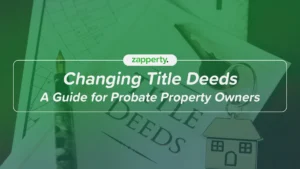Gazumping remains a significant issue in the English housing market, often leaving buyers frustrated and out of pocket. While the practice is legal in England and Wales, many argue that the government should introduce reforms to prevent it.
This article examines the current legal status of gazumping, compares parts of the UK laws with stricter homebuying regulations in Scotland and Australia, and explores whether new policies in 2025 could make homebuying fairer.
Is Gazumping Legal in the UK?
Yes, gazumping is legal in England and Wales because property sales are not legally binding until contracts are exchanged. This means that even after a seller has verbally accepted an offer, they are still free to accept a higher bid from another buyer.
This legal loophole allows sellers to maximise their profits but often leaves buyers vulnerable to financial loss. Costs associated with surveys, legal fees, and mortgage arrangements can quickly add up, and if a deal falls through due to gazumping, these expenses are non-refundable. Read more on our blog on why do sellers gazump Buyers? .
There is growing debate over whether the UK should introduce stronger legal protections to prevent gazumping and make the homebuying process fairer.
How Do Gazumping Laws in England & Wales Compare to Scotland and Australia?
Scotland: A Gazumping-Free Model
In Scotland, gazumping is far less common due to stricter legal protections. When a seller formally accepts an offer through their solicitor, it becomes legally binding. This prevents last-minute higher offers from disrupting the transaction.
Scottish homebuyers also benefit from the Home Report system, which requires sellers to provide upfront details about the property’s condition, valuation, and energy efficiency before listing it for sale. This transparency reduces delays and makes the process smoother.
Australia: More Buyer Protections
In Australia, homebuying laws vary by state, but binding contracts and cooling-off periods provide stronger protections against gazumping.
- Once an offer is accepted, a legally binding contract is usually signed immediately, preventing sellers from accepting new bids.
- Some states allow a cooling-off period, giving buyers a few days to withdraw from the sale if they change their minds.
- Auctions, which are popular in Australia, eliminate gazumping because the sale is final when the winning bid is placed.
By contrast, the English system allows for uncertainty up until the exchange of contracts, making buyers more vulnerable.
Will the UK Government Stop Gazumping in 2025?
The UK government has debated gazumping reforms for years, but no major changes have been introduced yet.
Past Reform Proposals
In 2018, the government considered introducing voluntary reservation agreements, where both buyers and sellers would commit to the sale earlier in the process. However, these agreements never became a legal requirement.
Another proposal included making property transactions legally binding earlier, similar to the Scottish model, but this was not implemented.
New Housing Policies in 2025
While there is no official policy to ban gazumping yet, housing reform is expected to be a key focus in this government’s agenda. Experts predict that new measures may include:
- Legally binding reservation agreements to stop sellers from accepting new offers after a verbal agreement.
- Faster exchange deadlines to reduce the time window for gazumping.
- Greater transparency in property transactions, possibly requiring sellers to disclose more details upfront, similar to the Scottish Home Report system.
If introduced, these policies could help protect buyers and reduce uncertainty in the housing market.
Should the UK Ban Gazumping? Expert Opinions from Property Lawyers
Legal experts remain divided on whether a complete ban on gazumping is the best solution.
Arguments for Banning Gazumping
- Reduces financial losses for buyers who have already spent money on surveys and legal fees.
- Creates a fairer property market, preventing last-minute bidding wars that favour only sellers.
- Increases buyer confidence, making home purchases less stressful.
Arguments Against a Gazumping Ban
- Restricts seller flexibility, especially if they receive a significantly better offer or face unexpected circumstances.
- May slow down the housing market by introducing new legal processes that delay sales.
- Could discourage competitive bidding, which helps sellers get the best price for their property.
While some legal experts support a gazumping ban, others argue that better regulation and transparency would be a more balanced approach.
How Can the UK Make Homebuying Fairer?
Instead of a total ban, there are several practical solutions that could make homebuying in England and Wales more secure.
1. Legally Binding Offers
Introducing legally binding agreements at an earlier stage would prevent sellers from accepting new bids once an offer is accepted.
2. Faster Exchange Timelines
Shortening the period between offer acceptance and contract exchange would reduce the risk of gazumping.
3. Mandatory Seller Disclosures
Requiring sellers to provide key property information upfront, like in Scotland, would make transactions smoother and quicker.
4. Encouraging Reservation Agreements
While voluntary reservation agreements exist, making them a standard practice could offer more certainty for buyers and sellers. We’ve also put together the top 7 strategies to avoid gazumping from a buyer perspective.
Conclusion
Gazumping remains legal in England and Wales, but ongoing debates suggest that reforms may be introduced in the coming years. The UK government has previously explored options to prevent gazumping, and 2025 could see new policies aimed at making homebuying fairer.
Comparisons with Scotland and Australia show that stronger legal protections can reduce gazumping, while expert opinions remain mixed on whether a full ban is necessary.
For now, buyers can protect themselves by moving quickly, securing mortgage approvals early, and considering reservation agreements. Sellers, on the other hand, should aim for transparency and fairness when handling multiple offers.
For a deeper understanding of how gazumping affects homebuyers, read our full guide: What is Gazumping?.




